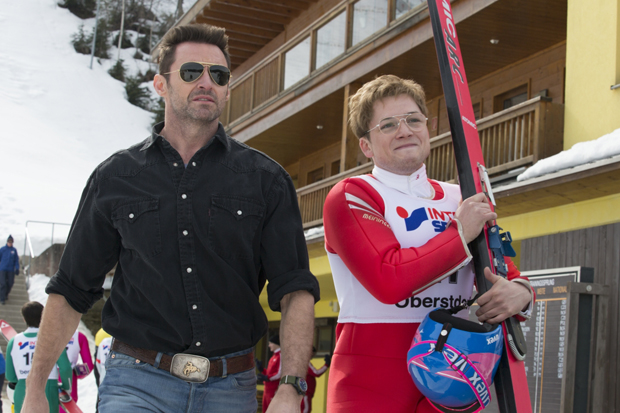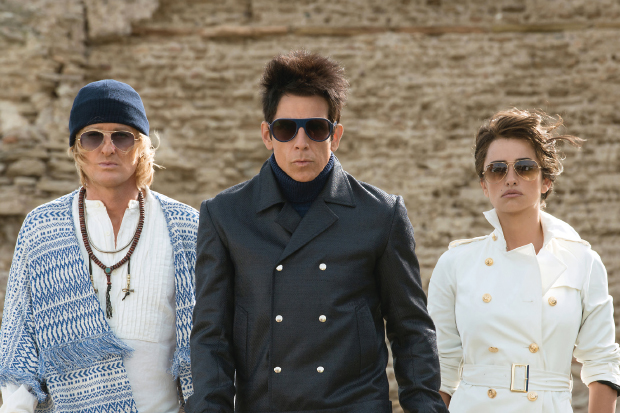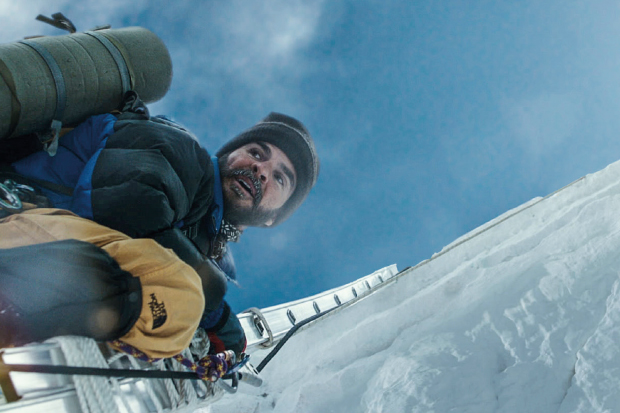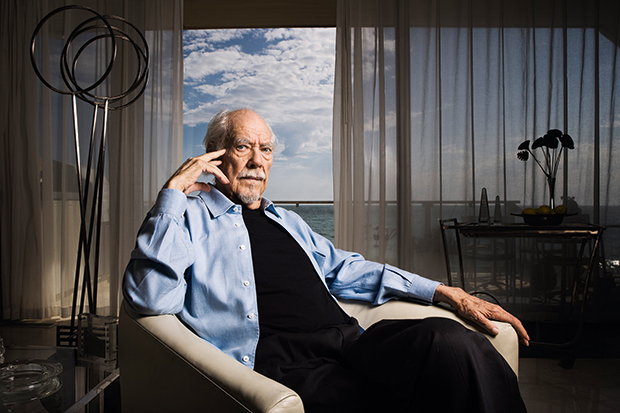Stateside critics, who panned Jennifer Lopez’s new film The Boy Next Door on its US release last month, may be unaware of the ability of the British to enjoy a film so bad it’s almost good. I suspect many Brits will shamefacedly delight in this so-called erotic thriller’s camp silliness, its truly dreadful script and its almost mockingly implausible premise. This is a film where a bespectacled Jenny from the Block plays a classics teacher (yes) who receives a pretty copy of Homer’s 3,000-year-old poem ‘The Iliad’ as a gift and quite sincerely exclaims, ‘Wow, is this a first edition?’
How can you follow a gem like that? The answer is with many more inadvertent jokes of a similar ilk, made all the funnier for their intended gravitas. This is a kind of gender-reversal Fatal Attraction, where J-Lo plays Claire, a sad, middle-aged woman on the brink of divorce who has a one-night stand with a hot young thing Noah (Ryan Guzman), only to discover that he is a complete psychopath intent on making her his missus and destroying her life until she relents. You can almost see the pre-production meetings with eager execs (one of whom was, in fact, Lopez herself) fawning all over what they no doubt considered a very clever, modern twist. ‘So subversive,’ they no doubt gushed. ‘Because it’s the man who’s jealous, see?’
And in some ways it is subversive, vaguely riffing off the Fifty Shades of Grey idea that erotica can be directed at women too. Take, for example, its bizarre but definitely different sex scene. There is actual foreplay (for her) and torso shots (of him) with the face completely cut out. Well, of course. Who cares about a face, not to mention personality, when the abs look like that? That’s feminism (isn’t it?).
The day after their night of passion, Noah turns up at Claire’s place to ruin dinner with her ex-husband and son. He smiles menacingly. ‘Oh yeah, I just love your mother’s cookies.’ Whatever that means. Cue more uproarious laughter from the audience.
About halfway through, those who have tittered throughout the fast-paced awfulness of the opening scenes may be tempted to leave. Once you realise that Claire will never go to the police, as any sensible person would do, no matter how homicidal her Romeo becomes, the plot begins to drag. But honestly, it’s worth sticking around, just to see one of the most revolting impromptu weapon choices ever made on screen.
This is popcorn cinema at its absolute worst — and I thoroughly enjoyed a disturbingly large amount of it. Though not for the reasons the director probably intended.
Something a little different, then, for fans of films where the crew has actually succeeded in making something innovative, rather than just thinking that they have. Hinterland is the debut offering from Harry Macqueen, a fresh-faced 30-year-old actor who has previously worked with Hollywood’s man of the hour, Boyhood director Richard Linklater (on Me and Orson Welles). He has now written, directed and starred in this labour of love, an ethereal and dreamily shot coming-of-middle-age tale.
Thesps who try to do it all can often end up, Birdman-style, looking conceited and amateurish. But in Hinterland’s case there is a good reason for Macqueen doing so much of the heavy lifting himself: budget. Hinterland was made on just £10,000.
It shows — but in a good way. Hinterland feels sparse and beautifully uncluttered. Harvey and Lola (played by Macqueen and the musician Lori Campbell) are two childhood friends reconnecting on a road trip down the Cornish coast after Lola’s family life is turned upside-down. It’s a landscape hung with grey skies and distant bursts of winter sunshine, a melancholy that matches the couple’s own mood.
They chat at night from neighbouring rooms on old walkie-talkies and discuss past loves, gazing on to the beach and dancing in the sand. What did they mean to each other as children and what do they mean to each other now? It’s not a romance exactly, but a sophisticated study of joint self-discovery in a world where twenty-somethings can feel caught between high expectations and dire economic circumstances. A radio show discussing high housing costs in Harvey’s car at the beginning of the film places it very firmly in today’s post-recession England.
I see a bit of influence here from the British director Joanna Hogg, with the same haunted, long shots as Hogg’s 2010 film Archipelago, and a respect for drawn-out silences reminiscent of last year’s Exhibition. Hinterland is not quite so invested in social realism, but it has, I think, that same wistful quality and understated optimism. Like a trip to the beach with friends, it is a film full of simple delights.
Got something to add? Join the discussion and comment below.
Get 10 issues for just $10
Subscribe to The Spectator Australia today for the next 10 magazine issues, plus full online access, for just $10.
You might disagree with half of it, but you’ll enjoy reading all of it. Try your first month for free, then just $2 a week for the remainder of your first year.














Comments
Don't miss out
Join the conversation with other Spectator Australia readers. Subscribe to leave a comment.
SUBSCRIBEAlready a subscriber? Log in